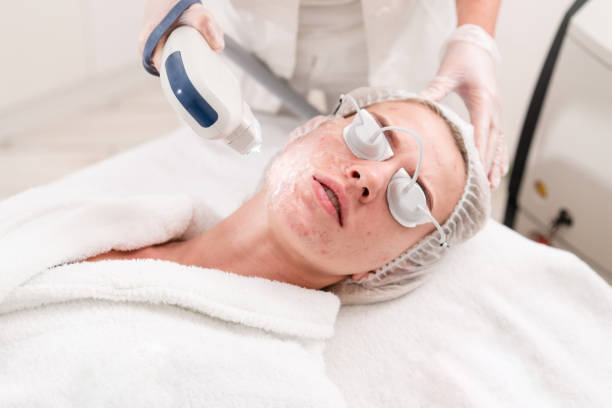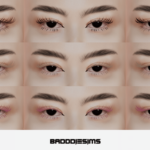Acne is a common skin condition that affects people of all ages and genders. While many cases of acne resolve on their own, some can leave scars that become long-term reminders of the condition. Laser treatment for acne scars has gained popularity in recent years as an effective way to reduce the appearance of these scars. In this article, we will delve into the details of laser treatment for acne scars, including case studies, comparisons, and advice for those considering this option.
What is Laser Acne Scar Removal and how does it work?
Laser acne scar removal is a type of cosmetic procedure that uses laser light to improve the appearance of acne scars. It is a non-invasive or minimally invasive procedure, meaning that there is no need for surgery. The procedure works by utilizing a specialized laser device that emits focused beams of light energy onto the targeted areas of the skin.
There are two main types of laser acne scar removal:
Ablative laser resurfacing: A study published in the journal Dermatology and Therapy in 2020 found that fractional ablative laser resurfacing was an effective treatment for acne scars. The study found that the treatment resulted in a significant improvement in the appearance of acne scars, with no serious side effects. This treatment removes the top layer of skin, revealing the newer, healthier skin underneath. Ablative laser resurfacing is the most effective type of laser acne scar removal, but it also has the longest recovery time.
Non-ablative laser resurfacing: This type of laser treatment does not remove the top layer of skin. Instead, it stimulates collagen production, which helps to improve the appearance of acne scars. Non-ablative laser resurfacing is less effective than ablative laser resurfacing, but it has a shorter recovery time.
A research published in the journal Advances in Dermatology and Venereology in 2020 found that a new type of laser, called the picosecond laser, was even more effective at treating acne scars than traditional lasers. The study concluded that the picosecond laser was able to remove acne scars with fewer treatments and with less downtime.
Laser acne scar removal is typically performed in a doctor’s office or clinic. The doctor will first clean your skin and then apply a numbing cream, then use a laser device to treat the acne scars. The laser light will create heat, which will damage the scar tissue. The body will then produce new collagen to replace the damaged scar tissue.
HOW MANY SESSIONS DOES IT TAKE?
The number of sessions required for laser acne scar removal varies depending on several factors, including the type and severity of the acne scars, the specific laser technology used, and individual skin characteristics. In general, patients can expect to undergo a series of laser treatments, typically ranging from 3-5 sessions, spaced several weeks apart.
For milder scarring, fewer sessions may be needed, while deeper or more extensive scarring may necessitate additional treatments. The gradual improvement in skin texture and scar reduction is usually noticeable after each session, with the final results becoming more apparent over several months as the skin continues to heal and produce new collagen. Dermatologists or skincare specialists will assess the patient’s unique condition and recommend an individualized treatment plan tailored to their specific needs and goals.
Keep in mind that laser acne scar removal is not a cure-all. It can improve the appearance of acne scars, but it cannot completely remove them. If you are considering laser acne scar removal, it is important to talk to your doctor about the risks and benefits of the procedure. You should also make sure that you see a qualified healthcare professional who has experience with laser acne scar removal.
Are There Any Risks or Side Effects?
Yes, there are risks and potential side effects associated with laser treatment for acne scars, although they tend to be relatively mild and temporary when performed by qualified professionals. These can include temporary redness, swelling, and discomfort immediately following the procedure. In some cases, patients may experience changes in skin pigmentation, either temporary darkening (hyperpigmentation) or lightening (hypopigmentation), particularly in individuals with darker skin tones. There is also a slight risk of scarring, skin infection, or persistent redness. To minimize these risks, it’s essential to follow pre-treatment and post-treatment care instructions, protect your skin from sun exposure, and choose an experienced practitioner who can customize the treatment to your specific skin type and scar severity. Consulting with a dermatologist or skincare specialist can help you assess the potential risks and benefits of laser acne scar removal based on your individual circumstances.
What is the cost of Laser treatment for Acne Scars?
The cost of laser treatment for acne scars can vary widely depending on several factors, including the type of laser used, the extent and severity of the scarring, the geographic location of the treatment center, and the number of sessions required.
In general, laser acne scar removal is a relatively expensive procedure. The average cost of laser acne scar removal in the United States is around $2,500. However, the cost can range from $1,000 to $5,000 or more, depending on the factors listed above.
Some insurance companies may cover the cost of laser acne scar removal, but this is not always the case. You should check with your insurance company to see if your coverage includes laser acne scar removal.
preparation & Aftercare
Before treatment
- Avoid sun exposure for several weeks before the treatment.
- Stop taking any blood thinners or non-steroidal anti-inflammatory drugs (NSAIDs) for two weeks before the treatment.
- Keep your skin clean and moisturized.
- Arrive at your appointment with a clean face.
After treatment
- Apply a cool compress to the treated area to reduce pain and inflammation.
- Keep the treated area clean and moisturized.
- Avoid sun exposure for several weeks after the treatment.
- Wear sunscreen with an SPF of 30 or higher when you are outdoors.
- Avoid touching, picking or using harsh skincare products on the treated area.
- Follow your doctor’s instructions carefully.
FAQs
- What Does Laser Treatment for Acne Scars Feel Like? The sensation during laser treatment for acne scars may vary depending on the type of laser used and the individual’s pain threshold. Non-invasive lasers typically feel like a warm, tingling sensation on the skin, while more invasive lasers may cause discomfort or slight pain. Most patients tolerate the procedure well and do not require anesthesia.
- How Long Does it Take for Results to Show? Results from laser treatment for acne scars may take several weeks or even months to become apparent, as the skin needs time to heal and regenerate. Patients may notice some immediate improvement in the appearance of their scars, but full results may not be visible for several months.
- Who is a Good Candidate for Laser Treatment for Acne Scars? Laser treatment for acne scars is generally safe for most individuals who have completed their acne treatment and are looking to reduce the appearance of scars. However, it may not be suitable for those with certain medical conditions or skin types. Your dermatologist can help determine if laser treatment is right for you based on your individual needs and medical history.
Final Takeaway
Laser treatment for acne scars is a safe and effective way to improve the appearance of scars and boost confidence. By choosing a reputable dermatologist, preparing for the procedure, and following post-treatment care instructions carefully, patients can achieve great results with minimal risk of complications. If you’re considering laser treatment for your acne scars, speak with your dermatologist to learn more about the benefits and risks of this procedure.







